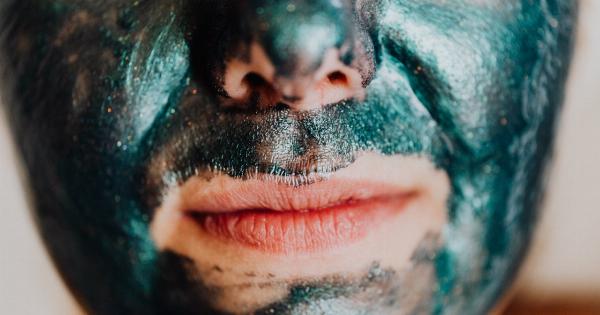It is impossible to count the number of things people believe about skin care that are simply not true. Some of the most common misconceptions revolve around products, routines, and even genetics.
In this article, we’ll explore some of the most commonly held misconceptions about skin care and try to put them to bed once and for all.
Misconception #1: Pricey Products are Always Better
The idea that higher-cost skin care products are always superior to their more affordable counterparts is a total myth.
While there’s certainly nothing wrong with splurging on a luxury beauty product every now and then if it makes you happy, there is truly no scientific data that backs up the claim that expensive products are automatically better.
Some expensive products may contain more luxurious ingredients or be more aesthetically pleasing in terms of packaging, scent, or texture, but that’s not the same thing as being more effective.
In many cases, drugstore brands have been shown to be just as – if not more – effective than their pricier counterparts.
Misconception #2: Natural is Always Better
This one is a bit more complicated.
While there are certainly some natural ingredients that can be beneficial for skin, the idea that anything “natural” is automatically better for you than anything “synthetic” is a huge oversimplification.
First of all, it’s important to remember that “natural” doesn’t always equal “safe.” There are plenty of natural ingredients that can cause irritation or allergic reactions in some people.
In addition, many natural ingredients can be unstable or difficult to preserve properly, which can actually make them less effective than their synthetic counterparts.
Ultimately, the idea that everything natural is good and everything synthetic is bad is overly simplistic.
The truth is that every ingredient – whether natural or synthetic – should be evaluated on its own merit and efficacy, and then used accordingly.
Misconception #3: Washing Your Face More is Better
It might make intuitive sense that washing your face more often could help keep it cleaner and clearer, but in reality, over-washing can actually do more harm than good.
When you wash your face too frequently or too aggressively, you can strip away the natural oils that keep your skin healthy and hydrated. This can lead to dryness, irritation, and even breakouts.
Most experts recommend washing your face just twice a day – once in the morning and once at night.
If you have particularly oily skin or you’re prone to breakouts, you might consider using a gentle, non-comedogenic cleanser that won’t clog your pores or exacerbate the situation.
Misconception #4: Sunscreen is Only Necessary on Sunny Days
UV damage from the sun is a leading cause of premature aging and skin cancer, so it’s incredibly important to protect your skin from those harmful rays.
However, many people assume that they only need to wear sunscreen on particularly sunny or hot days. In reality, the sun’s harmful rays can penetrate clouds and even certain types of clothing, so it’s important to wear sunscreen every day.
Experts recommend choosing a broad-spectrum sunscreen with an SPF of at least 30 and applying it generously to all exposed skin, regardless of the weather or time of year.
You should also reapply your sunscreen every two hours or more frequently if you’re swimming or sweating.
Misconception #5: People with Dark Skin Don’t Need Sun Protection
It’s a common misconception that people with dark skin don’t need to worry about sunscreen or protection from the sun. After all, they’re less likely to burn or get a sunburn, right?.
Unfortunately, this couldn’t be further from the truth.
While it’s true that people with dark skin are less likely to burn or experience immediate sun damage, they are still at risk for long-term damage like fine lines, wrinkles, and age spots. In addition, people with dark skin are actually more likely to die from melanoma than people with fair skin, most likely because the disease is harder to detect.
Regardless of your skin tone, it’s crucial to protect your skin from the sun’s harmful rays with a broad-spectrum sunscreen and protective clothing.
Misconception #6: Oily Skin Doesn’t Need Moisturizer
It’s a common misconception that people with oily skin don’t need to moisturize. After all, isn’t the oil on their skin enough to keep it hydrated?.
Not exactly. While it’s true that oily skin produces its own oils, those oils aren’t necessarily doing the same thing as a moisturizer.
Moisturizer contains ingredients – like humectants and emollients – that help to lock moisture into the skin and keep it hydrated throughout the day.
People with oily skin should look for moisturizers that are specifically formulated for their skin type.
These products should be lightweight and non-comedogenic (which means they won’t clog pores), and they may contain ingredients like glycerin, hyaluronic acid, or ceramides to help hydrate the skin without adding extra oil.
Misconception #7: You Can’t Control Acne
Acne is a frustrating and often stubborn skin condition that can be difficult to manage. However, the idea that you can’t control or manage your acne is simply not true!.
There are plenty of tips and tricks you can use to help manage your acne and prevent breakouts. Some of these include:.
- Washing your face twice daily with a gentle, non-comedogenic cleanser
- Using topical acne treatments like benzoyl peroxide or salicylic acid
- Avoiding picking or squeezing pimples, which can lead to scarring and infection
- Eating a healthy diet that’s low in sugar and processed foods
- Getting plenty of sleep and managing stress levels
If you’re still struggling with acne despite these tips, it may be worth talking to a dermatologist about prescription-strength treatments or other options.
Misconception #8: Aging is Inevitable
While it’s true that everyone will eventually experience some signs of aging, the idea that aging is totally inevitable and can’t be slowed down or prevented is not entirely accurate.
By taking good care of your skin from a young age – with a healthy diet, plenty of hydration, regular exercise, and good sun protection – you can help slow down some of the visible signs of aging like fine lines, wrinkles, and age spots.
There are also plenty of anti-aging skincare products on the market that can help to reduce the appearance of fine lines and other age-related concerns.
Some of these may contain retinoids, antioxidants, or other ingredients that can boost collagen production and improve skin texture and tone.
Misconception #9: You Don’t Need to Start Taking Care of Your Skin Until You’re Older
The idea that you don’t need to start thinking about skin care until you’re older is a dangerous one. After all, the earlier you start taking care of your skin, the better off you’ll be in the long run!.
Younger skin is more resilient and better able to tolerate certain treatments and products, so starting early can help to set you up for a lifetime of good skin health.
In addition, the sooner you start taking care of your skin, the more you’ll be able to prevent some of the signs of aging before they even start.
Misconception #10: Your Skin Will Look Perfect if You Just Drink More Water
It’s a common refrain in many beauty circles: “Drink more water, and your skin will look amazing!” While it’s certainly important to stay hydrated for overall health and wellness, the idea that drinking more water will magically give you perfect skin is not entirely true.
Drinking more water can certainly help to improve skin hydration and overall health, but it’s not a magic solution for every skin concern.
Other factors – like genetics, lifestyle, and sun exposure – can all play a role in the appearance of your skin, and there’s no single miracle ingredient that can solve everything.
The best way to take care of your skin is to focus on a holistic approach – eating a healthy diet, getting good sleep, managing stress, and using a good skincare routine and sun protection.
While drinking more water may be a part of that, it’s not the be-all and end-all of perfect skin.






























